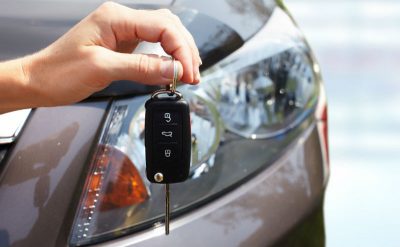
Buying your first car is a milestone moment. Traditionally, it means buying a bit of a budget banger which you’ll steadily grow quite fond of over the course of your ownership, to the point where you’ll be sad to see it go when the time finally does come. After all, we all remember our ‘first.’
Nevertheless, the actual buying process is both exciting and daunting in equal measure. Thousands of options from just as many sellers; where do you even begin?
Here are four key considerations before taking the plunge.
Finance or Buy Outright?
The first thing to think about is whether you want to buy your car in full or jump into a finance plan. This decision will define what type of car you can afford, as well as having a significant impact on your future finances.
It really depends on your budget. First time buyers are usually working with limited funds which will shape their buying choice, so there are certain questions you need to ask yourself:
- Can you afford a one-off payment? If not, you will have to look at a finance deal. If you can, can you afford the car you want or need?
- If you’re choosing to go down the finance route, can you sustain the monthly payments? A finance deal will tie you into a two to four year contract, likely involving a significant upfront deposit and monthly payments for the duration of the contract.
- What method best suits you? Buying outright means you own the car with no further financial commitment. Meanwhile, a finance plan might get you a better car but at a higher cost.
There are plenty of questions to ask yourself around this. It’s key that you establish what’s most important to you. Essentially: better finances or better car?
Shop Around
An obvious one, but doing your research on the market could save you hundreds, even thousands on your purchase. Visit local dealers, car supermarkets and take a look around online. Get an understanding of your chosen vehicle’s market value and take it forward into your negotiations (yes, you should be negotiating on price).
Furthermore, understand the risks when it comes to buying from different sellers. There’s a significant difference in the guarantees and security of your purchase when buying from a registered dealer against haggling with a private seller.
Things like warranties and transparency on car description and condition should be on your mind. It’s about finding the right balance between a good price and a reliable seller.
Don’t be Afraid to do Your Due Diligence
You’re no doubt familiar with the ‘kick the tyres’ routine when it comes to inspecting a car, but it’s essential that you actually do check the vehicle thoroughly before purchase. Sometimes you can feel under pressure to make a decision with a salesman or stranger stood right beside you, but it’s paramount you take the time to find the reassurances you need for a purchase as big as a car.
Do some research on the basics of what you should be looking out for and head to a viewing with confidence. Don’t be afraid to ask questions, closely inspect the bodywork and interior or request to take it out for a test drive.
At the end of the day, if you’re not happy; walk away. You must be satisfied with the vehicle you’re about to buy.
Find the Right Insurance for You
Finally, once you’ve found your new car, take a look into insurance options. It’s worth checking out quotes before you buy, as you may well find the premium on the hot hatch you planned to buy is a bit too hot to handle.
Once you’ve bought the vehicle, sorting the insurance should be your very next step. If you’re thinking about going for third party cover to save yourself some money; don’t bother. Curiously, third party insurance has become so heavily associated with high risk drivers that premiums are now significantly more expensive than fully comprehensive policies.
If you’ve bought a relatively new car, you may wish to look into guaranteed asset protection (GAP) insurance. GAP is designed to protect your car’s value against depreciation in the case of being written off or stolen. It can represent good value for new car owners but isn’t so relevant for those buying used cars.
Do your research on this, but if you do think it makes sense, you can find very reasonable premiums, with ALA often quoting between £100-£300 for three years’ cover.
Follow this checklist and the car market should seem a little less scary, and you could save yourself some money as well.










